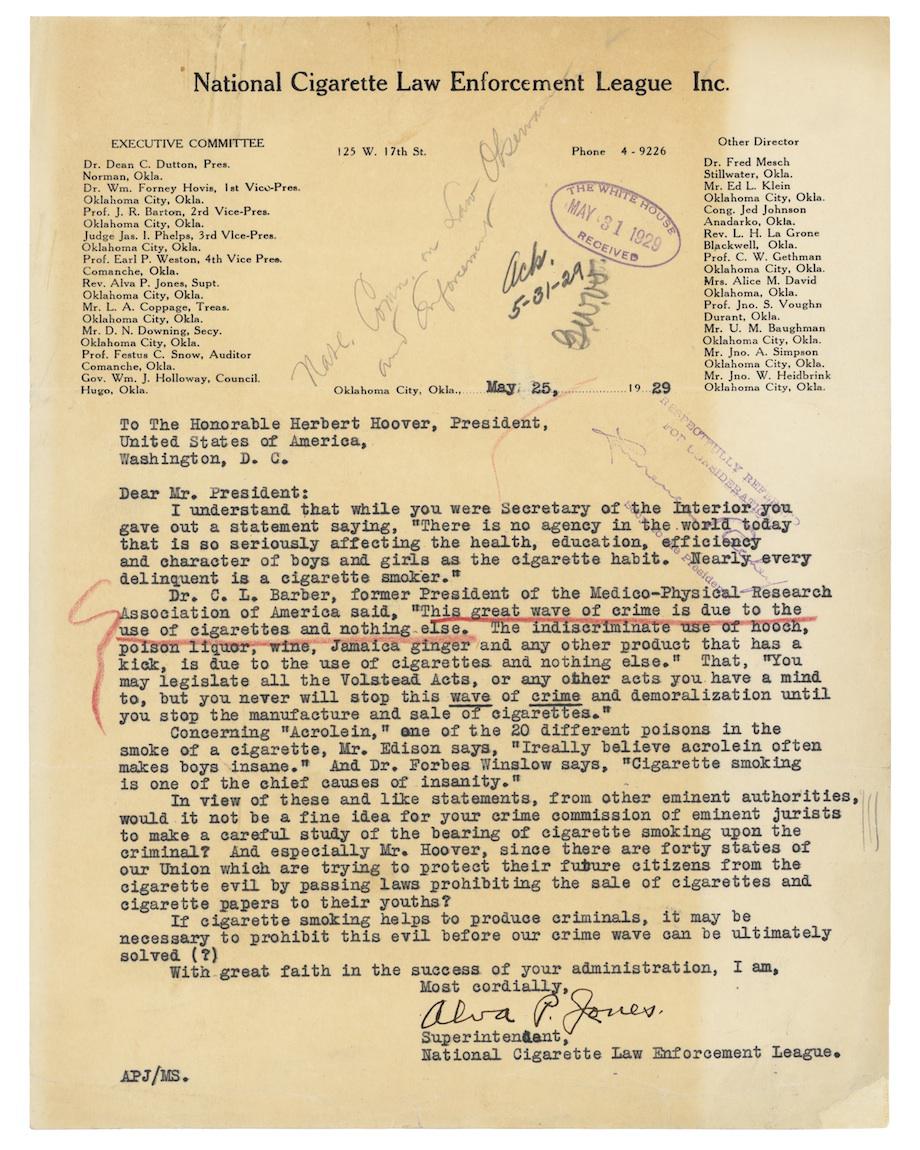The Vault is Slate’s history blog. Like us on Facebook, follow us on Twitter @slatevault, and find us on Tumblr. Find out more about what this space is all about here.
As many laughable ‘50s-era ads attest, it took Americans until relatively late in the game to begin pinning blame on tobacco for illnesses like cancer and emphysema. Less known is the moral panic of the 1910s and 1920s, in which concerned citizens worried that young people who smoked cigarettes were under the influence of a dangerous drug and were prone to criminal acts of violence.
This 1929 letter to President Hoover, from Alva P. Jones, the superintendent of the National Cigarette Law Enforcement League, sums up this point of view. The league joined such larger organizations as the Women’s Christian Temperance Union, the National Education Association, and the National Congress of the PTA in a decadeslong fight against tobacco smoking.
After Hoover established a National Commission on Law Observance and Enforcement in 1929 and charged it with investigating the causes of a perceived uptick in lawlessness and violent crime, the administration received letters from thousands of citizens offering their opinions on policing, Prohibition, and the Mob.
In their letter, the Oklahoma-based league offered their own sincere belief that none of the criminality that the public commonly associated with alcohol would exist if it weren’t for cigarettes. Smoking made young people crazy, “demoralized” them, and led to drinking and delinquency.
Jones quotes no less an authority than Thomas Edison. In 1914, Edison had sent a well-known letter to Henry Ford in which he said he would never hire a smoker, because he thought that the chemicals in cigarette papers would inevitably lead to mental instability.

Letter for Alva P. Jones to Herbert Hoover, 5/25/1929. The National Archives.